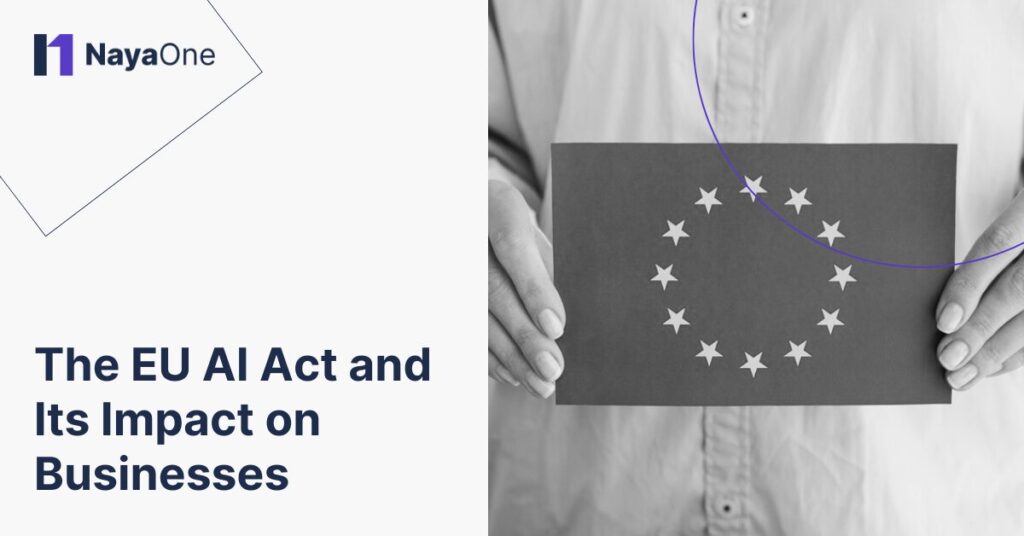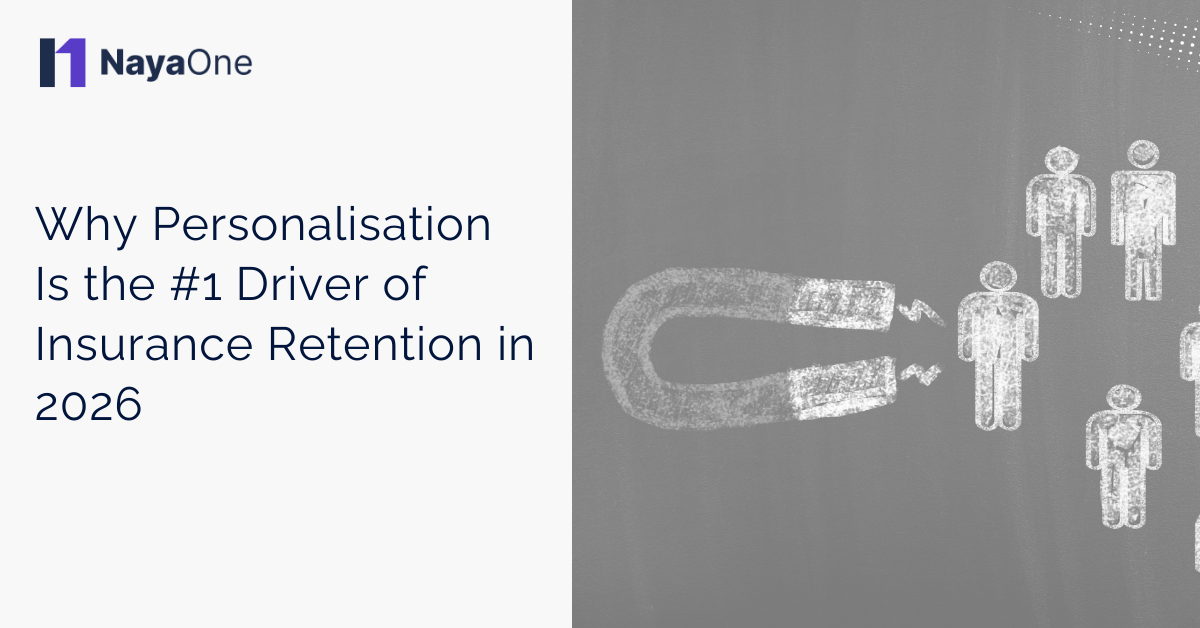
Oli Platt
Head of Client Solutions
Artificial intelligence (AI) is here to stay. All we can do now is ensure its use is safe for individuals and businesses worldwide. With the recent adoption of the EU Artificial Intelligence Act (EU AI Act), the European Union is leading the way in artificial intelligence legislation. This is ushering in a new era of accountability, transparency, and ethical AI practices. Passed by an overwhelming majority in the European Parliament, these new rules bring sweeping changes to the AI landscape. It will impact businesses, policymakers, and consumers alike. With stringent requirements and stiff penalties for non-compliance, the EU AI Act aims to strike a delicate balance between fostering innovation and safeguarding fundamental rights. It also lays the groundwork for a trustworthy AI ecosystem in Europe and beyond.
What Is the EU AI Act?
The European Union Artificial Intelligence Act (EU AI Act) is groundbreaking legislation. It will regulate the development, deployment, and use of artificial intelligence (AI) within the EU. The European Parliament formally adopted it on March 13, 2024, after an overwhelming majority vote of 523-46. It is the world’s first comprehensive and standalone law that aims to govern AI technologies.
Background of the of EU AI Regulation
The European Artificial Intelligence Act started with a proposal by the European Commission on April 21, 2021. Since then, it has undergone a meticulous legislative process. Lawmakers made significant amendments to address emerging AI technologies such as foundation, generative, and general-purpose AI. For instance, businesses will need to be transparent about the use of AI technologies. They have to disclose to the public the use of AI in text, images, or videos.
Key Provisions and Objectives
The primary objective of the European AI Act is to ensure the development and usage of AI systems in the EU that are safe, trustworthy, and compliant with fundamental rights and values. It aims to foster investment and innovation in AI while enhancing governance, enforcement, and market harmonisation within the EU. It introduces clear definitions for the various actors involved in the AI ecosystem, including providers, deployers, importers, distributors, and product manufacturers, thus establishing accountability across the AI supply chain.
Significance as the World's First AI Regulation Law
The European AI Act holds immense significance as the world’s first standalone law exclusively targeting AI regulation. By leading the way in AI governance, the EU seeks to exert a profound influence on global markets and practices. It aspires to achieve the same far-reaching impact as the General Data Protection Regulation (GDPR).
What Does the EU AI Act Mean for Businesses?
The adoption of the EU Artificial Intelligence Act initiates a new era of regulatory oversight. It affects both businesses operating within the European Union and those that provide AI-related products and services to EU markets.
EU AI Act Summary
The EU AI Law applies to all entities that participate in the development, deployment, import, distribution, or manufacturing of AI systems within the EU market. This includes providers, deployers, importers, distributors, and product manufacturers, regardless of their geographic location. As such, businesses both within and outside the EU must navigate the regulatory landscape delineated by the AI Act to ensure compliance with its provisions.
Compliance Obligations
Businesses subject to the AI Act must adhere to stringent compliance requirements that aim to foster the development of safe, trustworthy, and ethical AI systems. These obligations encompass various facets, including:
- Model Inventory and Risk Classification: Organisations must inventory their AI systems, classify them based on risk levels, and ensure transparency in their operations.
- Conformity Assessment and Registration: High-risk AI systems must undergo a conformity assessment before market release. They also should register in an EU database.
- Ethical AI Practices: Implementing ethical AI principles and the establishment of formal governance structures is necessary to ensure responsible AI development and usage.
- Penalties for Non-Compliance: Non-compliance with the AI Act can result in substantial fines of up to 7% of global turnover, civil redress claims, and reputational damage.
Sectoral Impact
The AI Act’s impact extends across various sectors, with particular relevance to industries reliant on AI technologies. Sectors such as financial services, healthcare, transportation, and critical infrastructure will undergo significant transformation in response to the regulatory imperatives laid out by the AI Act. Businesses operating in these sectors must proactively assess their AI systems and mitigate risks. They must also align with the regulatory framework to ensure continued compliance and competitiveness.
Preparation and Adaptation
To effectively navigate the evolving regulatory landscape, businesses need to prepare and adapt. Key steps include:
- Conducting thorough assessments of existing AI systems and identifying areas of non-compliance.
- Instituting robust governance frameworks and ethical guidelines for AI development and deployment.
- Collaborating with regulatory authorities and industry peers to exchange best practices and insights.
- Investing in AI readiness assessments and compliance initiatives to mitigate legal and financial risks.
The Artificial Intelligence Act represents a new era of accountability, transparency, and ethical governance in the regulation of AI technologies. For businesses, compliance with the AI Act is not merely a legal obligation. It’s a strategic imperative to foster trust, innovation, and sustainable growth in the AI landscape. By proactively embracing the regulatory mandates of the AI Act, businesses can drive positive societal impact, while unlocking the transformative potential of artificial intelligence.
Implementation Challenges and Next Steps
The EU Artificial Intelligence Act lays out a comprehensive framework for regulating AI technologies. However, its implementation poses various challenges and requires common efforts from businesses, regulatory bodies, and stakeholders.
Technological Complexity
One of the greatest challenges in implementing the EU AI Act stems from the inherent complexity of AI technologies. AI systems, particularly those classified as high-risk, often exhibit intricate algorithms and decision-making processes. This makes it challenging to ensure transparency, accountability, and compliance. Businesses must navigate the technical intricacies of AI systems while adhering to regulatory mandates. This calls for collaboration between AI experts, legal professionals, and regulatory authorities.
Compliance Burden
Compliance with the AI Act entails a significant burden for businesses. This is particularly true for those operating across multiple jurisdictions or engaging in cross-border AI activities. Navigating divergent regulatory requirements, undergoing conformity assessments, and adhering to stringent compliance measures can strain organisational resources and impede innovation. Moreover, the threat of substantial fines for non-compliance emphasises the importance of proactive compliance strategies and risk mitigation measures.
Ethical and Societal Implications
Beyond regulatory compliance, businesses must address the ethical and societal implications of AI technologies. AI systems wield considerable influence over various aspects of human life. Ensuring the ethical development, deployment, and usage of AI systems requires a nuanced understanding of ethical frameworks. Stakeholder engagement and ongoing dialogue with civil society organisations and advocacy groups are also crucial.
Interdisciplinary Collaboration
Addressing the multifaceted challenges of the AI Act requires collaboration and knowledge exchange among diverse stakeholders. Businesses, regulatory bodies, academia, and civil society must collaborate to develop pragmatic solutions, share best practices, and foster innovation while upholding regulatory compliance and ethical standards. Cross-disciplinary engagement can enhance regulatory clarity and promote responsible AI development. It can also foster a culture of trust and accountability within the AI ecosystem.
Next Steps for Businesses
To resolve the challenges outlined above, businesses must undertake proactive measures. It can help them navigate the regulatory landscape effectively and leverage the transformative potential of AI technologies. Key next steps include:
- Comprehensive Compliance Assessments: Conducting thorough assessments of existing AI systems to identify areas of non-compliance and mitigate regulatory risks.
- Investment in Compliance Capabilities: Investing in compliance capabilities, including AI governance frameworks, ethical guidelines, and risk management protocols, to ensure alignment with regulatory mandates.
- Engagement with Regulatory Authorities: Collaborating closely with regulatory authorities to seek guidance, clarify regulatory requirements, and foster a culture of regulatory compliance and transparency.
- Continuous Monitoring and Adaptation: Establishing mechanisms for continuous monitoring, evaluation, and adaptation to evolving regulatory requirements, technological advancements, and societal expectations.
The successful implementation of the EU Artificial Intelligence Act depends on proactive collaboration, strategic foresight, and a commitment to ethical AI governance. By addressing implementation challenges, embracing interdisciplinary collaboration, and prioritising compliance, businesses can effectively navigate the regulatory landscape and harness the transformative potential of AI technologies while fostering trust, accountability, and societal benefit.
Enforcement and Oversight Mechanisms
Effective enforcement and robust oversight mechanisms are essential pillars of the EU Artificial Intelligence Act (AI Act). They ensure compliance, uphold accountability, and safeguard fundamental rights and values.
Regulatory Fines and Penalties
The AI Act empowers regulatory authorities to impose significant fines and penalties on entities that violate regulatory provisions. Non-compliance with the AI Act can result in regulatory fines of up to 7% of global worldwide turnover. This can be a substantial deterrent for entities flouting regulatory requirements.
National Enforcement Frameworks
Enforcement of the AI Act primarily occurs at the national level. EU Member States are responsible for implementing and enforcing regulatory provisions within their jurisdictions. National regulatory authorities oversee compliance monitoring, enforcement actions, and investigations into violations of the AI Act. By delegating enforcement responsibilities to national authorities, the AI Act ensures localised enforcement that suits each member state’s specific regulatory landscape and cultural context.
European AI Office
Tasked with overseeing compliance with the AI Act, the European AI Office plays a central role in coordinating enforcement actions. It also issues recommendations and promotes regulatory coherence across EU Member States.
AI Board
Complementing the role of the European AI Office, the AI Act establishes an AI Board. It is responsible for ensuring the consistent application of regulatory provisions and promoting regulatory convergence. The AI Board issues recommendations, opinions, and technical standards to guide stakeholders. By fostering collaboration among regulatory authorities and stakeholders, the AI Board facilitates knowledge exchange. In addition, it promotes regulatory coherence and enhances the effectiveness of AI governance mechanisms.
Next Steps for Oversight and Enforcement
As the AI Act transitions from adoption to implementation, ensuring effective oversight and enforcement remains paramount. Key next steps for enhancing oversight and enforcement mechanisms include:
- Capacity Building: Enhancing the capacity and expertise of national regulatory authorities and the European AI Office to effectively monitor compliance, investigate complaints, and enforce regulatory provisions.
- Stakeholder Engagement: Facilitating stakeholder engagement and collaboration to solicit feedback, address emerging challenges, and promote regulatory coherence and transparency.
- Continuous Evaluation: Conducting regular evaluations of oversight and enforcement mechanisms to identify areas for improvement, adapt to evolving threats and challenges, and enhance the efficiency and effectiveness of regulatory enforcement.
Enforcement and oversight mechanisms are critical components of the EU Artificial Intelligence Act. As they evolve, stakeholders must remain vigilant, proactive, and committed to advancing the overarching goals of ethical AI governance and societal well-being.
Ensuring Compliance with an AI Sandbox
The landscape of artificial intelligence (AI) regulation, innovation, and governance is continuously evolving. An AI Sandbox provides a safe and controlled environment where stakeholders can test, develop, and refine AI technologies within a framework of ethical guidelines, regulatory compliance, and best practices.
What Is an AI Sandbox?
An AI Sandbox is a virtual or physical space in which businesses, researchers, policymakers, and other stakeholders can explore, experiment with, and prototype AI solutions in a safe and controlled manner. It offers a structured framework for testing AI algorithms, models, and applications while mitigating potential risks and ensuring adherence to regulatory requirements. Key features of an AI Sandbox include:
- Regulatory Compliance: An AI Sandbox operates within the boundaries of existing AI regulations and ethical guidelines. It provides guidance on compliance and responsible AI practices.
- Ethical Considerations: Ethical considerations are paramount in an AI Sandbox, with emphasis placed on fairness, transparency, accountability, and the protection of individual rights and privacy.
- Collaborative Environment: An AI Sandbox fosters collaboration and knowledge sharing among diverse stakeholders. This includes industry players, academia, policymakers, and civil society organisations.
- Risk Mitigation: By providing a controlled environment for AI experimentation, an AI Sandbox helps limit potential risks of AI deployment.
Explore NayaOne's AI Sandbox
Ready to explore the potential of AI in a safe and collaborative environment?
Trusted by leading financial institutions and regulatory bodies, NayaOne’s AI Sandbox can help you:
- Experiment with cutting-edge AI technologies.
- Collaborate with industry experts, researchers, and policymakers.
- Gain insights into AI regulation, compliance, and best practices.
- Contribute to the development of responsible AI solutions.
- Shape the future of AI innovation and governance.
Maximise the success of your AI strategy with NayaOne’s AI Sandbox.





